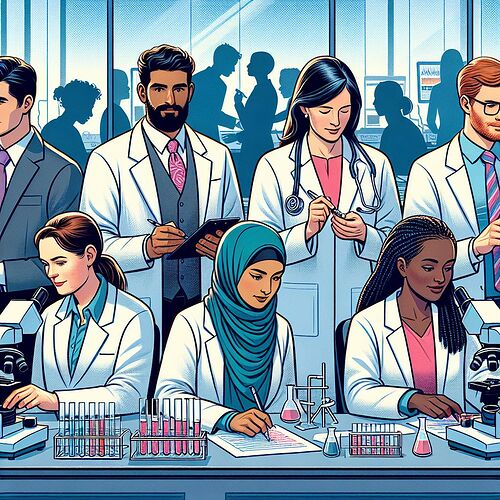Biomedical research skills are highly sought after in various fields. If you possess these skills, numerous career paths are available to you. This article will explore some of the top careers for individuals with biomedical research skills.
1. Biomedical Scientist
Biomedical scientists conduct research to understand diseases and develop new treatments. They work in laboratories, analyzing samples and conducting experiments.
Example
As a biomedical scientist, you might study the effects of a new drug on cancer cells. Your findings could lead to the development of more effective treatments.
2. Clinical Research Coordinator
Clinical research coordinators manage clinical trials, ensuring they are conducted ethically and efficiently. They work closely with patients, doctors, and other researchers.
Example
In this role, you might coordinate a trial to test a new vaccine. You would ensure that participants are informed about the study and that data is collected accurately.
3. Biostatistician
Biostatisticians apply statistical methods to analyze data from biomedical research. They help interpret results and make predictions about health outcomes.
Example
A biostatistician might analyze data from a study on heart disease to identify risk factors and predict future trends.
4. Regulatory Affairs Specialist
Regulatory affairs specialists ensure that biomedical products comply with regulations. They prepare documentation for regulatory agencies and keep up with changing laws.
Example
In this position, you might submit a new medical device for approval, ensuring it meets all safety and efficacy standards.
5. Medical Science Liaison
Medical science liaisons (MSLs) act as a bridge between pharmaceutical companies and the medical community. They provide scientific information and support to healthcare professionals.
Example
An MSL might present research findings to doctors, helping them understand the benefits of a new drug.
6. Epidemiologist
Epidemiologists study the patterns and causes of diseases in populations. They use this information to develop strategies to prevent and control outbreaks.
Example
As an epidemiologist, you might investigate an outbreak of a new virus, identifying its source and recommending measures to contain it.
7. Bioinformatics Specialist
Bioinformatics specialists use computer science and biology to analyze biological data. They develop algorithms and software to interpret complex datasets.
Example
In this role, you might analyze genomic data to identify genetic markers associated with a particular disease.
8. Pharmaceutical Sales Representative
Pharmaceutical sales representatives promote and sell medications to healthcare providers. They use their biomedical knowledge to explain the benefits and uses of their products.
Example
A sales representative might meet with doctors to discuss a new drug, highlighting its advantages over existing treatments.
9. Health Policy Analyst
Health policy analysts evaluate and develop policies related to healthcare. They use research to inform decision-making and improve public health outcomes.
Example
In this role, you might analyze the impact of a new healthcare law, providing recommendations to policymakers.
10. Science Writer
Science writers communicate complex scientific information to the public. They write articles, reports, and other materials that make research findings accessible.
Example
As a science writer, you might write an article explaining the latest advancements in cancer research for a popular science magazine.
These are just a few of the many careers available to those with biomedical research skills. Each role offers unique opportunities to contribute to the advancement of healthcare and improve patient outcomes.
Did I miss anything? Add your comments below!
